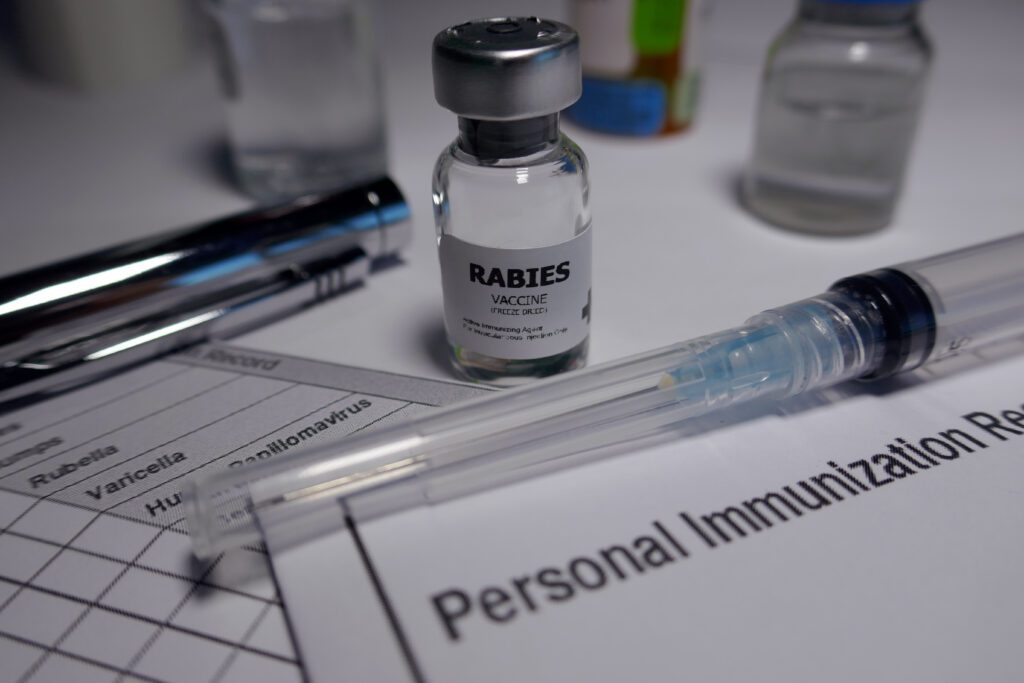Most people, even if they don’t have pets, know about rabies. Rabies is one of the oldest known diseases in the world, dating to the beginning of written history. And, before the first rabies vaccine was invented in 1885 by Dr. Louis Pasteur, nearly all humans infected with rabies died.
In Polk County, according to the most recent data from 2023, there have been no reported cases of rabies in humans. However, there were three cases of rabies in animals in 2023—a noticeable increase from one case in 2022.
The Department of Health in Polk County (DOH-Polk) wants to provide a refresher on rabies, what it means for our animal and human populations, and why rabies vaccinations are vital for our collective public health.
Rabies is a very deadly but entirely preventable viral disease. Rabies can spread from the saliva of an infected animal. It can spread to humans and pets via bites and scratches. In the United States, wild animals like bats, coyotes, foxes, raccoons, and skunks are the most likely to transmit rabies. The virus results in nearly 100% fatality for humans and other mammals if medical measures aren’t taken immediately upon exposure and before symptoms start.
If you’ve been bitten or scratched by a wild animal or a pet that might have rabies, talk to a medical provider immediately so that you might receive the rabies vaccine. Unlike other preventive vaccines, the rabies vaccine is typically administered to people post-exposure. However, people at increased risk for rabies exposure, such as those who work with animals that could have rabies or those who are traveling to parts of the world where rabies is common and access to healthcare is limited, are recommended to get the rabies vaccine pre-exposure for their protection.
To ensure that the public is informed when rabies is identified in an animal, thus preventing human and pet exposures, rabies cases in Polk County are monitored by DOH-Polk, healthcare providers, and Polk County Animal Control. Although human cases remain rare, it is crucial for the public to stay informed and proactive about rabies prevention for themselves and their animals.
Vaccination is crucial to rabies prevention. For pets, ensuring up-to-date vaccinations not only protects the individual animal but also serves as a barrier between wild animals and human populations. In many states including Florida, laws require that pets such as dogs, cats, and ferrets receive regular rabies vaccinations.
Here are some actions everyone can take to protect themselves and their pets from rabies:
- Vaccinate Your Pets: Regular vaccinations are the first line of defense. Keeping pets current with their rabies shots protects them and helps create a buffer between wild animals and humans.
- Avoid Contact With Wildlife: Wild animals should not be fed or approached. If you observe an animal acting erratically or aggressively, contact local animal control immediately.
- Seek Immediate Medical Attention: If you’re bitten or scratched, promptly wash the wound with soap and water, and consult a healthcare provider regarding rabies treatment post-exposure.
- Stay Informed: Follow updates from DOH-Polk and your pets’ veterinarians to understand the current status of rabies in your area and learn about any new vaccination recommendations.
Rabies is entirely preventable through vaccination and public awareness. By ensuring timely vaccination for both animals and at-risk humans, we not only protect ourselves but also contribute to a safer, healthier community.
About the Author: Dr. Joy Jackson, an internal medicine physician, serves the community as director of the Florida Department of Health in Polk County (DOH-Polk). For more information about DOH-Polk, visit mypolkhealth.org. Follow DOH-Polk on Twitter at twitter.com/FLHealthPolk.
